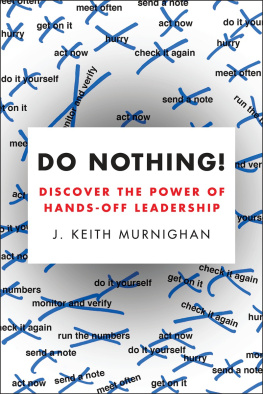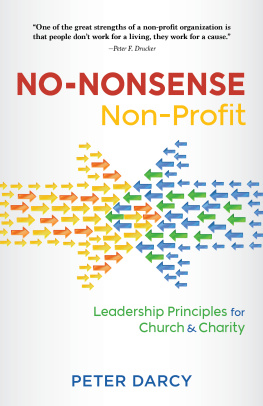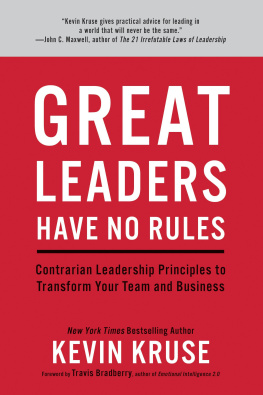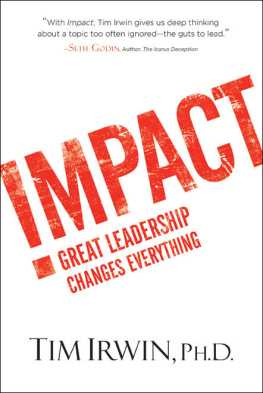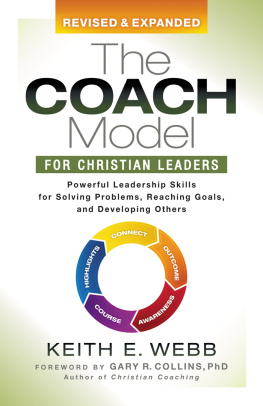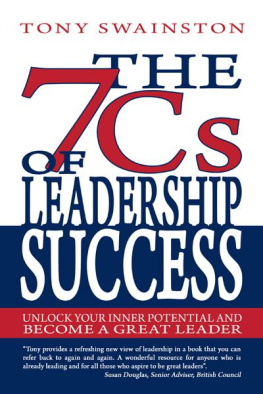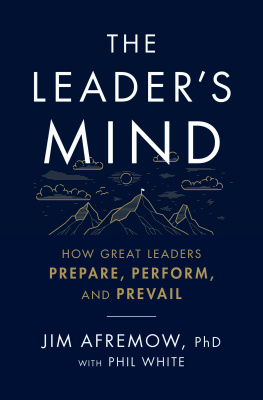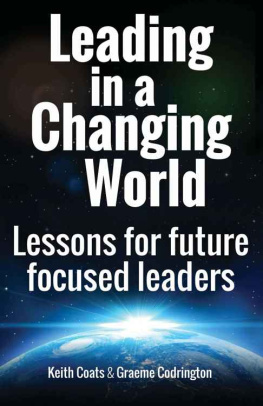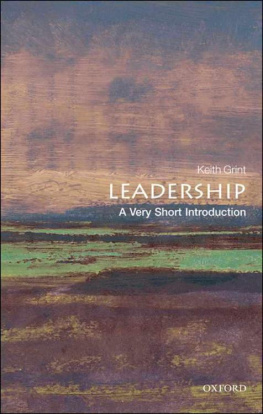PORTFOLIO / PENGUIN
An imprint of Penguin Random House LLC
375 Hudson Street
New York, New York 10014
penguin.com
First published in the United States of America by Portfolio / Penguin 2012
This paperback edition published 2016
Copyright 2012 by J. Keith Murnighan
Penguin supports copyright. Copyright fuels creativity, encourages diverse voices, promotes free speech, and creates a vibrant culture. Thank you for buying an authorized edition of this book and for complying with copyright laws by not reproducing, scanning, or distributing any part of it in any form without permission. You are supporting writers and allowing Penguin to continue to publish books for every reader.
eBook ISBN: 9781101571965
THE LIBRARY OF CONGRESS HAS CATALOGED THE HARDCOVER EDITION AS FOLLOWS:
Murnigham, John Keith.
Do nothing: how to stop overmanaging and become a great leader / J. Keith Murnighan
p. cm.
Includes bibliographical references and index.
ISBN 978-1-59184-530-0 (hc.)
ISBN 978-0-14-310856-6 (pbk.)
1. LeadershipPsychological aspects. 2. Industrial management. I. Title.
HD57.7.M8677 2012
658.4'092dc23
2012000406
Cover design: Henry James Nuhn
Version_2
This book is dedicated to
Mom, Dad, and Beth
Kev, Tom, and Peg
the kinds of leaders we should all emulate
Preface
THIS BOOK IS all about your natural tendencies and when they can lead you astray. Most of our natural tendencies are pretty wonderful: they have repeatedly helped us get out of tight spots and, bottom line, they have allowed us to survive and even thrive.
The problem is that some of our natural tendencies are no longer effective. Our ancestors were hunters and gatherers whose existence depended on their natural drive for self-preservation: they developed tendencies and strategies that were evolutionarily effective and they passed them down from generation to generation until they eventually landed in us. In the last thousand years, however, civilization and technology have advanced far faster than we have evolved, making some of our natural tendencies obsolete. Developing the ability to formulate strategies that consistently resulted in finding sources of food and nourishment, for instance, was an incredibly smart approach to life thousands of years ago, but these kinds of skills are much less relevant in todays increasingly urban world.
We cant escape our ancestors, however, and the influence that their successes have had on the way we live our lives. In particular, they endowed us with a natural inclination to actively pursue our goalsso much so that not acting feels terribly wrong. This legacy is tremendously helpfuluntil we become leaders. Then our natural tendencies to act lead us to do too much. This is the curse of overmanaging, and far too many leaders fall under its spell. Do Nothing! shows you why you must fight this natural tendency, both in your thoughts and in your actions. It also includes summaries of a host of findings from research in the social sciences that documents its negative effects.
This book is for you and everyone else you know who is called on to lead. Leaders have a tremendous, trickle-down impact on scores of people: one great leader can have a host of positive effects on hundreds, sometimes thousands of people. Organizations are reflections of their leaders, and if their leaders can be more effective and avoid overmanaging, many, many people will benefit.
Do Nothing! focuses on leaders at the top, the middle, and the bottom of organizationsin other words, leaders of all kinds, with a specific focus on leaders and their immediate teams. I am particularly interested in the leaders of relatively small groups of people who interact on a regular basis. Do Nothing! does not try to present ideas that will allow CEOs to have a direct impact on every one of the 83,000 employees in their organizations. Instead, it focuses more on the thoughts and actions of leaders and their team members, CEOs and their top management teams, executives and their closest contacts, middle managers and the groups that look to them for leadership, and you and the people you work with most. If more and more leaders of more and more teams start doing less and, as a result, start being more and more effective, the overall impact could be incredible.
Do Nothing! includes a series of interconnected, counterintuitive ideas that can help you think differently, act differently, and lead differently, in ways that are not particularly natural. If there are just a few golden nuggets hereideas that you can really use to be more effectivethat will be great. And maybe, just maybe, you will return to this book next year, five years from now, or even twenty-five years from now, and pick up another useful idea or two that will help you simultaneously do less and be more effective.
In the end, Do Nothing! is about making other peoples lives better and, as a nice by-product, yours, too. By all means let me know if you find it useful, as well as how youve used it to be more effective. Thanks.
J. Keith Murnighan
E VANSTON , I LLINOIS
A UGUST 2011
PORTFOLIO / PENGUIN
DO NOTHING!
2012 by Evanston Photographic Studios Inc.
J. Keith Murnighan is an award-winning professor at the Kellogg School of Management at Northwestern University and an active consultant and trainer for a host of companies around the world. His research has been cited in The Wall Street Journal , The New York Times , The Economist , and Forbes . He lives in Evanston, Illinois.
Praise for
J. Keith Murnighan and Do Nothing!
Murnighan uses rigorous research to provide detailed advice that will help leaders do their jobs better, develop more adept and committed followers, and suffer from less stress and overwork. Even though most business books present new wine in old bottles, Do Nothing! is the rare book that provides a refreshing perspective and tangible advice on leadership that isnt available anyplace else.
Robert I. Sutton, author of The No Asshole Rule
With Do Nothing! , Keith Murnighan has clearly done somethingsomething significant. Hes reconceptualized the idea of effective leadership through a compelling analysis that allows existing and prospective leaders to see how to work both less and better at their craft.
Robert B. Cialdini, author of Influence
Too often, new leaders find it difficult to delegate previous responsibilities or create a sea of activity during times of crisis. Instead, fighting these tendencies will lead to more effective leadership. Murnighan does a fantastic job demonstrating how this contrarian approach can actually be applied successfully in business. A must read.
Matthew B. McCall, partner, New World Ventures
Murnighan has, in what is both a unique and an innovative turnaround, identified that, contrary to popular opinion, leadership turns out to be as much about what you dont do as what you do. The best leaders today and in the future will look more like basketball coaches than great players, rarely engaging in the day-to-day delivery but more often focused on strategy and doing little other than letting great players run with the ball.

